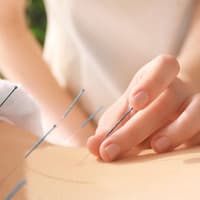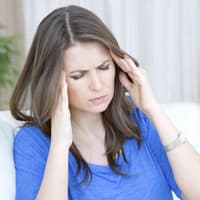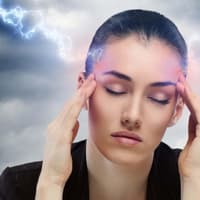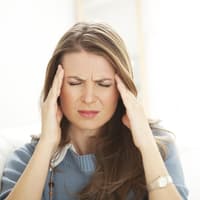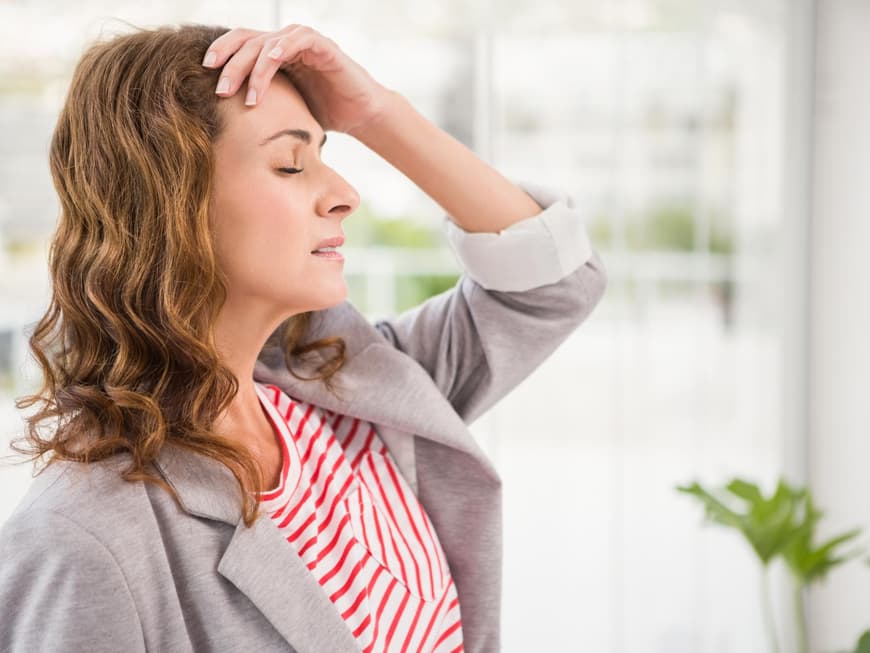
Headaches have become part of everyday life for many people. But it doesn't have to be. Our expert Dr. Andreas Böger explains:
How do headaches develop in the first place?
"The modern idea of us experts is that there is an inflammatory reaction in the vessels of the meninges. This releases inflammatory and pain messengers, for example calcitonin gene-related peptides, or CGRP for short. These messenger substances transmit signals from one nerve cell to another and, according to the latest findings, can trigger migraines."
Are headaches underestimated?
"Yes, because sufferers are often not taken seriously because you can't see their pain. But it is a problem of really considerable importance."
Can stress also cause headaches?
"Yes, which is why stress management and relaxation are very important and part of the therapy."
Why are more and more children and young people suffering?
"They are no longer outside as often, they move much less than they did ten or 20 years ago, and they also have a high level of media consumption - staring at a screen can trigger headaches. Then there is the so-called cell phone neck. Frequent smartphone use has a negative impact on the cervical spine and can cause headaches."
Is headache mainly a female condition?
"With migraines the ratio is two to one, with cluster headaches it's the other way around. The reason for the predominance of female migraine patients could be sex hormones."
Are there habits that promote pain?
"Definitely! Lack of exercise and a poor diet in particular promote pain. You should exercise regularly, take a long walk every day or go to the gym. A good diet includes fruit, vegetables, wholegrain products and little sugar."
Can headaches be prevented at all?
"You can, with a lifestyle change. That means eating healthily and getting enough exercise. Of course, there are also medications for migraine patients that have a preventative effect and are well tolerated, including Botox."
Is it better to take a tablet straight away?
"You don't have to sit out the pain, and if it doesn't happen too often, you can take a painkiller. As a rule of thumb, you should take an acute tablet no more than ten days a month."
Is every headache the same?
"There are 263 types of headache according to the International Classification of Headache diseases."
Can headaches also be a warning sign?
"Yes, you should see a doctor if the pain becomes chronic - in other words, if it occurs more than 15 days a month. Alarm signals also include sudden onset of pain, accompanying neck stiffness and dizziness. A stroke or meningitis may be behind it, sometimes also a liver disease."
Why do headaches become chronic?
"Headaches can become chronic due to excessive use of medication, for example. In this case, the specialist can help best."
SOS tips
At the first signs of tension headaches, try this...
Magnesium
A magnesium deficiency manifests itself in frequent muscle cramps, but also often in headaches. The mineral is found in cocoa, peanuts, wholemeal bread and oatmeal, among other things. Calcium, for example from milk, inhibits its absorption. Easier: take magnesium from the drugstore or pharmacy.
Caffeine
Caffeine blocks the formation of prostaglandins. These substances are involved in the development of migraines and headaches.
Peppermint oil
Mint prevents the body from sending pain signals to the central nervous system. Gently massage the oil into the temples. Open a fresh air window and take a deep breath: oxygen stimulates blood circulation, the blood vessels dilate - the pain disappears.
Vanilla
The spice contains eugenol. This is an essential oil - it unclogs blocked blood vessels. and: It relieves pain. Cinnamon Mix a teaspoon of cinnamon with a teaspoon of water and apply to the forehead. This stimulates blood circulation.
On the sofa
Rest is sometimes the best medicine: lie down on the sofa for half an hour and relax.
You might also be interested in this:
Headaches: What helps against the annoying pain?
What to do when the weather causes headaches?
Put an end to headaches
Migraine vaccination: help for sufferers at last?
Finally pain-free: the best remedies for headaches and migraines

